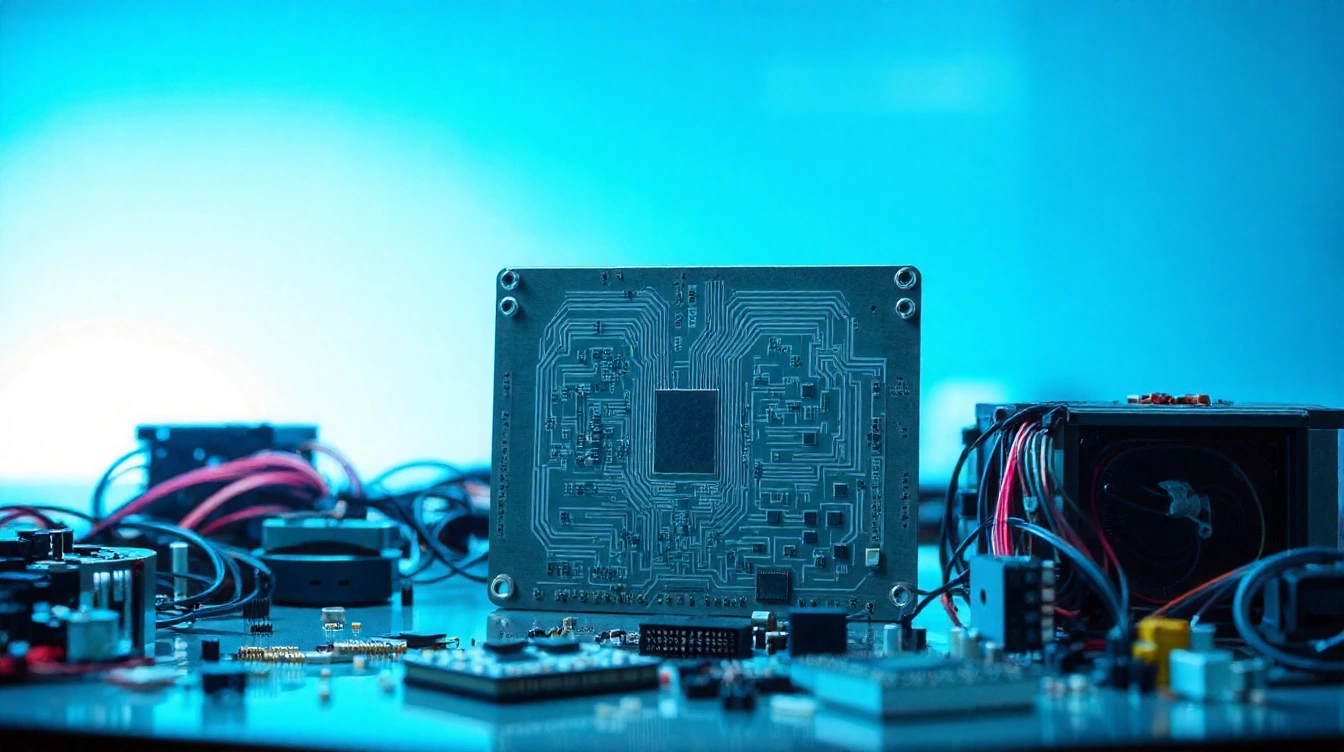Major UK Innovations in Computing Hardware
The UK has become a notable hub for computing hardware innovations, driven by cutting-edge research and development. In recent years, several recent UK technology breakthroughs have redefined performance benchmarks and sustainability in hardware design.
One standout innovation is the development of advanced silicon photonics, which significantly boosts data transmission speeds while reducing energy consumption. This breakthrough is pivotal for high-speed computing and data centers, making the UK a leader in green computing hardware.
In parallel : How Will Quantum Computing Transform the Future of Technology in the UK?
Another remarkable achievement is in quantum computing components. UK researchers have created more stable qubit architectures, addressing key issues related to error rates and scalability. These advancements accelerate the practical adoption of quantum technologies, positioning the UK at the forefront of the quantum revolution.
Emerging hardware trends in the UK also emphasize modular, customizable computing systems. This trend aligns with growing demands for versatile hardware that can adapt to evolving AI and machine learning workloads. Through investments in these areas, the UK is nurturing an ecosystem that expertly balances innovation with real-world application, continuing to push the limits of what computing hardware can achieve.
Also to see : How is the UK tech industry adapting to climate change challenges?
Leading UK Organisations Advancing Hardware Development
The UK technology companies sector boasts several influential players pushing the boundaries of hardware innovation. These companies specialize in areas such as semiconductors, embedded systems, and Internet of Things (IoT) devices. Among them, startups stand out by focusing on niche hardware solutions that cater to evolving market demands, often combining cutting-edge engineering with agile development cycles. Their work significantly contributes to the hardware R&D UK landscape by introducing novel concepts and scalable products.
Academic excellence also fuels hardware advancement in the UK. Prominent UK research institutions like universities and technical schools conduct pioneering research on materials, circuits, and computing architectures. This academic hardware R&D UK is essential for translating scientific findings into practical technologies, often supporting hardware companies through innovation ecosystems.
Collaborations between industry and academia represent a powerful driver in the sector. Joint initiatives enable the sharing of expertise, resources, and infrastructure, accelerating development timelines and fostering breakthroughs. These partnerships effectively bridge theoretical research and commercial hardware solutions, underpinning the dynamic growth of UK technology companies in this competitive field.
Semiconductors and Processor Technologies in the UK
The UK semiconductor innovation landscape is dynamic, driven by a strong focus on processor development UK and advanced chip design. UK companies and research institutions have made significant strides in semiconductor manufacturing techniques, emphasizing efficiency and performance. This progress reflects in cutting-edge materials and novel architectures that boost computing power while reducing energy consumption.
Noteworthy startups and established firms at the forefront of chip design UK are pioneering specialized processors tailored for AI, edge computing, and secure communications. These innovations position the UK as a competitive player in a market dominated by larger global manufacturers. The emphasis on customized processors enables industries ranging from aerospace to healthcare to leverage tailored semiconductor solutions.
Importantly, the UK’s role in the global semiconductor supply chain is evolving. It extends beyond fabrication to include design, testing, and the early-stage development of semiconductor technologies. The integration of advanced research with industrial application underlines the country’s commitment to reinforcing its semiconductor ecosystem, supporting both domestic needs and international partnerships. This holistic approach makes the UK a noteworthy contributor to ongoing advancements in processor technologies worldwide.
Quantum Computing Progress in the UK
The UK quantum computing landscape has seen significant strides, with both public and private sectors driving innovation in quantum hardware UK. Leading research institutions and companies have made breakthroughs that enhance the stability and scalability of quantum systems. For example, advancements in qubit coherence and error correction techniques are pivotal for practical quantum applications.
Key projects focus on developing scalable quantum processors, with startups collaborating closely with universities to push the boundaries of quantum research UK. These collaborations have accelerated progress toward building integrated quantum devices that can outperform classical counterparts in specialized tasks.
Government support plays a crucial role, funneling substantial funding into quantum technologies to secure the UK’s position in this competitive field. Programs aimed at nurturing quantum startups and facilitating partnerships between academia and industry underline the commitment to accelerating quantum hardware UK development. This synergy between innovation and funding creates a robust ecosystem, ensuring that UK quantum computing continues on a path toward global leadership.
The combination of cutting-edge research, focused government backing, and dynamic enterprises establishes a fertile ground for the UK’s quantum future.
Artificial Intelligence Hardware and Accelerators
Artificial Intelligence hardware is rapidly evolving, with the UK emerging as a significant player in developing specialised AI chips and accelerators. Machine learning chips UK-based companies design are optimised to handle complex computations efficiently, accelerating processes critical for neural network training and inference.
Neural network accelerators UK manufacturers produce focus on enhancing speed and energy efficiency by offloading specific AI tasks from general-purpose processors. This not only improves performance but also lowers operational costs, making AI applications more accessible for industries.
UK companies contribute significantly to AI hardware advancement by integrating these technologies into sectors such as healthcare, finance, and automotive. Their innovations enable faster data processing and real-time analytics, essential for deploying AI solutions at scale.
Moreover, the collaboration between academia and industry in the UK fosters continuous improvements in machine learning chips UK firms develop, ensuring hardware evolves alongside software algorithms. This synergy strengthens the UK’s position in the global AI hardware landscape.
Understanding these advancements reveals how AI hardware UK capabilities underpin transformative technologies, allowing organisations to optimise workflows and innovate effectively. The role of neural network accelerators UK providers is thus pivotal for sustaining AI progress nationwide.
Sustainable and Energy-Efficient Computing Solutions
Sustainable computing UK is rapidly advancing, focusing on green hardware UK that minimizes environmental impact without sacrificing performance. Key to this progress are energy-efficient tech UK initiatives that prioritize both hardware design and operational energy use. By employing low-power processors, optimized cooling systems, and adaptive power management, devices consume less energy while maintaining high output.
UK innovators emphasize a circular hardware economy, which extends device lifespan through recycling and remanufacturing. These efforts reduce electronic waste and conserve critical resources. For example, recovered materials like rare earth metals are reintegrated into manufacturing, promoting sustainable computing UK practices that lessen reliance on virgin materials.
The future outlook for green hardware UK highlights the integration of bio-degradable materials and modular components, facilitating easier upgrades and repairs. Energy-efficient tech UK also encompasses software optimization, enabling hardware to run efficiently under varied workloads. This holistic approach ensures that sustainability is embedded from design to disposal, positioning the UK as a leader in responsible computing solutions.









